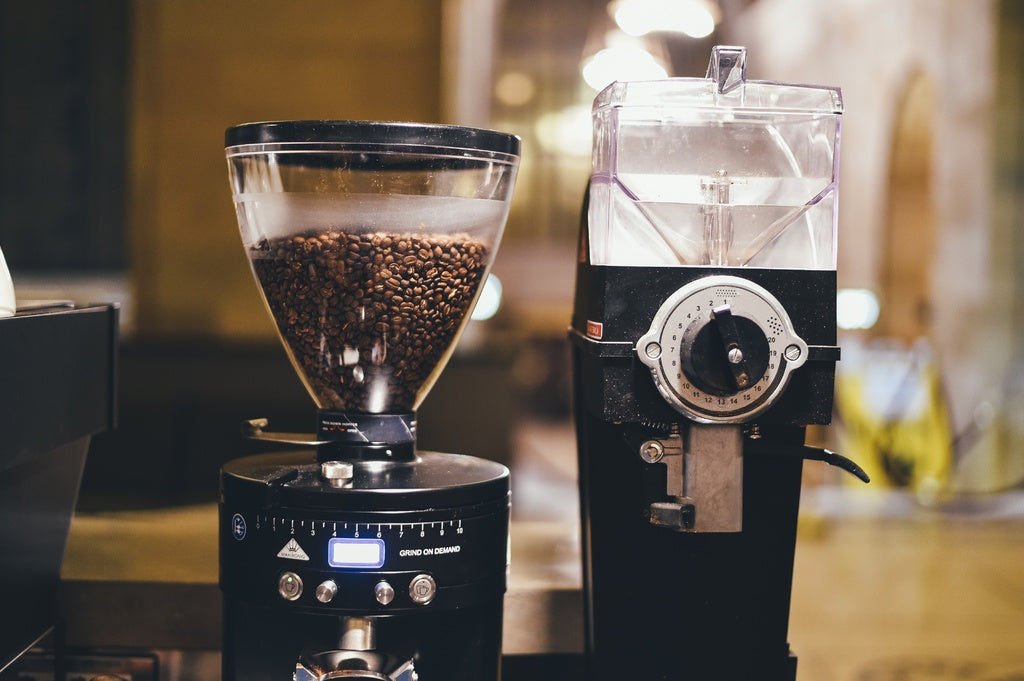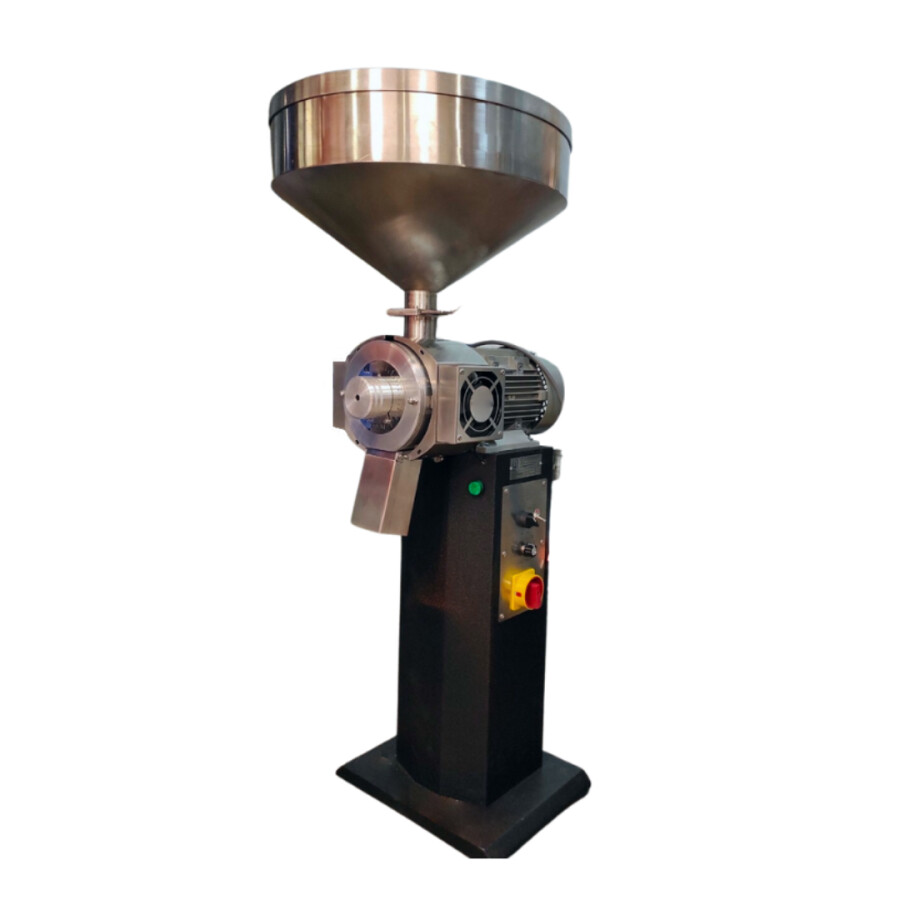Just How to Select the Perfect Industrial Coffee Grinder for Your Business
Choosing the excellent industrial coffee mill for your business is a multifaceted choice that requires cautious consideration of several critical factors. It is important to review your specific grinding needs, consisting of the quantity of coffee processed and the preferred work uniformity, as these aspects directly influence flavor and customer satisfaction. Additionally, comprehending the numerous kinds of grinders available can significantly influence your operational performance. As you browse these considerations, one should also consider the effects of budget plan and upkeep. What various other factors could make or damage your choice?
Assess Your Grinding Requirements
When choosing a commercial coffee mill, one need to initially analyze their grinding demands to guarantee ideal efficiency and uniformity. This first examination involves recognizing the volume of coffee to be refined daily, as well as the desired grind dimension for numerous brewing techniques. A high-capacity grinder may be essential for organizations offering huge amounts of coffee, while smaller sized operations might find a more small model adequate.
Moreover, it is important to think about the kinds of coffee beans being used, as different beans might require certain grinding techniques to accomplish the ideal flavor account. Oily beans could require a mill created to take care of such features without overheating or clumping.
Specialty coffee companies typically demand accurate work sizes to enhance extraction and taste, making it vital to choose a grinder that can deliver uniform results. Evaluating the offered area and electrical needs will help in choosing a grinder that fits effortlessly right into your functional process.
Understand Grinder Kind
Comprehending the various kinds of industrial coffee mills is essential for making an informed option that meets details operational requirements. There are mostly two categories of mills: blade mills and burr grinders.
Blade grinders use spinning blades to slice the coffee beans, leading to an inconsistent grind size - Industrial Coffee Grinder. While they may be a lot more cost effective, they are often not suitable for commercial applications where accuracy is crucial
On the various other hand, burr mills give an extra consistent grind by squashing the beans in between 2 surface areas. They can be additional categorized into flat burr and conelike burr mills. Apartment burr mills use a regular work dimension and are commonly preferred for espresso preparation, while cone-shaped burr grinders are versatile and can deal with a range of brew approaches, from coffee to French press.
When selecting a grinder, consider the specific demands of your service, including desired grind consistency, production quantity, and the kinds of coffee beverages you prepare to use - Industrial Coffee Grinder. Each grinder kind has its limitations and benefits, so recognizing these subtleties allows informed decision-making that straightens with operational objectives
Evaluate Grind Dimension Consistency
Achieving work size uniformity is necessary for producing top quality coffee, as variations in fragment dimension can considerably influence removal and flavor. When selecting a commercial coffee mill, it is critical to assess just how well the device maintains uniformity in work size throughout different batches. Inconsistent work sizes can bring about unequal removal, resulting in a cup that may taste weak or overly bitter.
To examine work size uniformity, take into consideration grinders with attributes such as adjustable grind setups and top quality burrs. Burr mills, in specific, succeed in creating consistent particle sizes compared to blade grinders. The product and form of the burrs play a crucial duty, with stainless steel and ceramic alternatives offering longevity and precision.

Think About Manufacturing Ability
In the busy globe of coffee manufacturing, considering production capacity is extremely important for businesses aiming to meet demand without sacrificing quality. The production capacity of a commercial coffee mill straight affects a business's capability to meet orders effectively, manage inventory, and react to fluctuating market fads.
When assessing manufacturing capability, it is necessary to evaluate the grinder's result price, normally determined in pounds per hour. This measurement should straighten with your organization's predicted sales quantity and development targets. For example, a coffee shop with a high turnover may call for a mill that can process several hundred extra pounds daily, while a smaller sized operation might suffice with a reduced capability model.
Additionally, consider the kind of coffee being refined. Different beans and blends might affect grinding speed and performance, requiring a grinder efficient in managing diverse manufacturing needs. It's additionally worth factoring in the mill's ability to keep consistent top quality under high outcome problems, as any type of variations can affect the last product.
Eventually, selecting a grinder that matches your business's production ability will guarantee you continue to be competitive and receptive to customer assumptions.

Budget Plan and Upkeep Aspects
When reviewing the ideal commercial coffee maintenance, budget and grinder aspects play a significant role in the these details general decision-making procedure,. An initial investment in a high-quality grinder can produce long-lasting advantages, yet it's vital to develop a clear spending plan that straightens with your business's operational needs. Think about both the purchase cost and possible functional prices, such as power consumption and replacement parts.
Industrial coffee grinders require regular upkeep to ensure optimum efficiency and durability. Assess the manufacturer's referrals for upkeep, consisting of cleaning routines and parts substitute, as these will certainly affect long-term functional costs.

Investing in a mill that is resilient yet very easy to preserve can save money with time. While lower-priced choices might be appealing, they might incur greater maintenance prices and decreased performance. Eventually, stabilizing initial prices with long-term upkeep and functional effectiveness will certainly direct you to the most effective option for your business's coffee grinding requirements.
Verdict
Selecting the excellent industrial coffee mill necessitates a complete examination of grinding requirements, mill types, grind dimension uniformity, Recommended Reading production capability, and financial considerations. By prioritizing these aspects, businesses can guarantee the procurement of a dependable, reliable mill that meets particular functional needs. An appropriate mill not just enhances the quality of the coffee created yet additionally contributes to the overall success and earnings of the venture. Lasting performance and maintenance simplicity must continue to be main to the decision-making procedure.
Specialized coffee organizations frequently demand accurate grind sizes to boost removal and taste, making it crucial to select a grinder that can deliver consistent outcomes. Apartment burr grinders offer a consistent work dimension and are typically favored for coffee prep work, while conical burr grinders are functional and can deal with a range of mixture techniques, from espresso to French press.
When picking a commercial coffee grinder, it is essential to evaluate just how well the maker preserves uniformity in work size across various batches. Burr mills, in specific, excel in producing uniform particle dimensions compared to blade mills.Choosing the optimal industrial coffee mill necessitates a detailed analysis of grinding requirements, mill types, grind dimension consistency, production capability, and budgetary factors to consider.